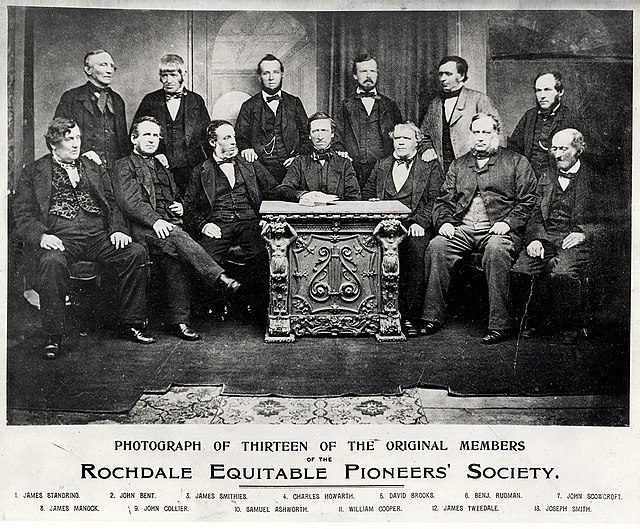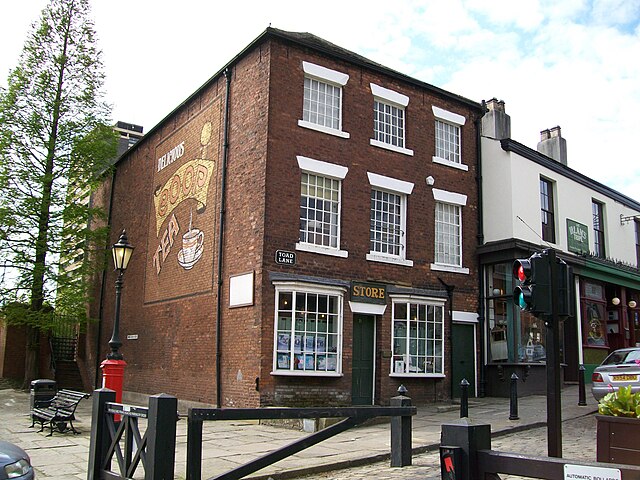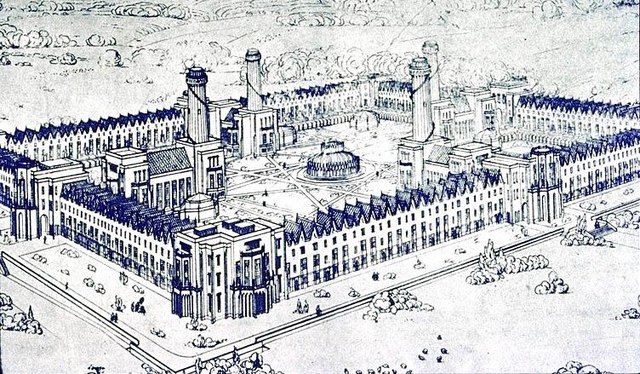Rochdale Society of Equitable Pioneers
The Rochdale Society of Equitable Pioneers, founded in 1844, was an early consumers' co-operative, and one of the first to pay a patronage dividend, forming the basis for the modern co-operative movement.
Although other co-operatives preceded it, the Rochdale Pioneers co-operative became the prototype for societies in Great Britain. The Rochdale Pioneers are most famous for designing the Rochdale Principles, a set of principles of co-operation, which provide the foundation for the principles on which co-ops around the world operate to this day. The model the Rochdale Pioneers used is a focus of study within co-operative economics.
Thirteen of the surviving Rochdale Pioneers, photographed in 1865.
The original Toad Lane Store
A consumers' co-operative is an enterprise owned by consumers and managed democratically and that aims at fulfilling the needs and aspirations of its members. Such co-operatives operate within the market system, independently of the state, as a form of mutual aid, oriented toward service rather than pecuniary profit. Many cooperatives, however, do have a degree of profit orientation. Just like other corporations, some cooperatives issue dividends to owners based on a share of total net profit or earnings ; or based on a percentage of the total amount of purchases made by the owner. Regardless of whether they issue a dividend or not, most consumers’ cooperatives will offer owners discounts and preferential access to goods and services.
Raunds Co-operative Society Limited was a consumer co-operative society based in Raunds, Northamptonshire, founded in 1891.
Model of Robert Owen's visionary project for a cooperative settlement. Owenites fired bricks to build it, but construction never took place.
The Rochdale Society of Equitable Pioneers was established in 1844 and defined the modern cooperative movement.
January 1947 Co-op Magazine back cover designed as a promotional poster





